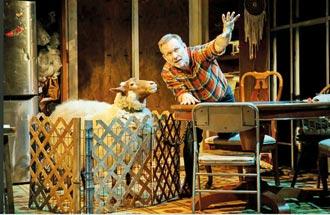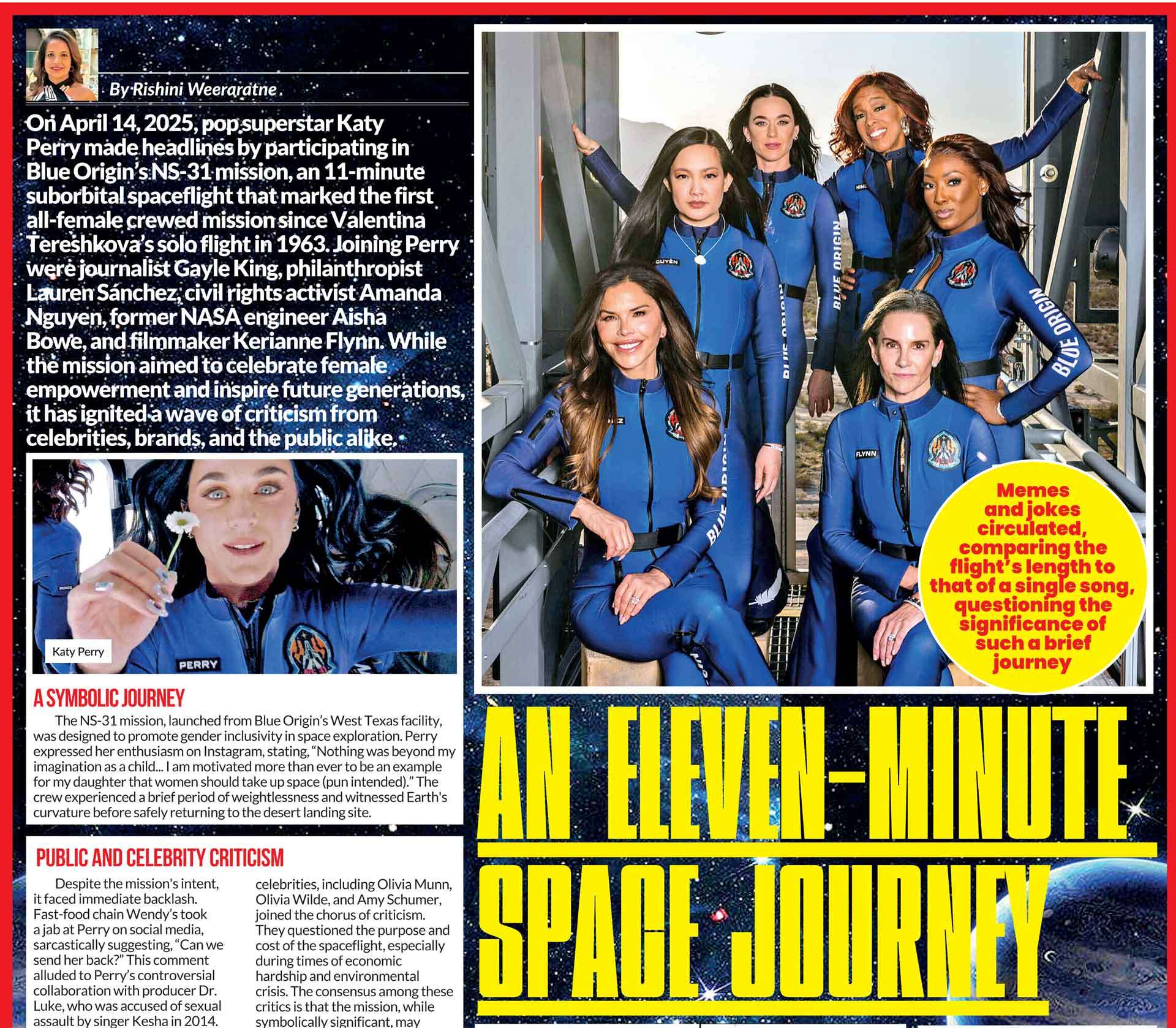

|
|
Sam Shepard’s Curse of the Starving Class is a play about desperation, disillusionment, and the gnawing hunger that defines a family trapped in the suffocating grip of poverty. However, in this latest revival at The New Group, that raw tension is often drowned out by overbearing performances and the weight of modern interpretations that don’t quite resonate with the essence of Shepard’s gritty, poetic Americana.
At the heart of this production is the Tate family; a cash-strapped California farming clan who,
despite having food, are constantly driven by an obsessive need to check the refrigerator. As a metaphor for their existential hunger, it’s starkly clear: no matter how much they have, they’re
never quite satisfied. Yet the refrigerator in this version; a sleek, contemporary LG model with
its logo proudly displayed, raises an immediate question: just how poor are the Tates? The set’s aesthetic, designed by Arnulfo Maldonado, hints at the characters’ entrapment but fails to fully connect the world Shepard built with the modern elements added by director Scott Elliott. The play’s main themes; corporate entanglements, bad land deals, and the American myth of self-sufficiency, are present but somewhat diluted in execution. The fridge, as a symbol of the Tates’ yearning for something just beyond reach, may be an attempt to echo our modern fixation with consumerism and hollow aspirations. Yet, it lacks the sharpness needed to tie it to the broader critique of American life. A more cohesive vision might have given these ideas the weight they deserve, but here, they feel underdeveloped. The performances oscillate between moments of rawness and forced theatrics.
Calista Flockhart, as the matriarch Ella, attempts to subvert her Ally McBeal image, embracing a grittier role full of frustration and desperation. But her portrayal doesn’t fully capture the depth of the character’s unravelling. At times, Flockhart’s Ella feels more like a caricature than a fully fleshed-out figure in crisis. Christian Slater, playing Weston, the alcoholic patriarch, brings the expected intensity but struggles to convey the deeper, more menacing layers of his character. Weston is meant to be a terrifying force; his charisma and volatility should unsettle those around him, but Slater’s performance never quite reaches that explosive potential. While he’s certainly loud, there’s a lack of urgency, a sense that Weston’s dangerous qualities are merely implied rather than fully realized.
The younger generation, represented by Cooper Hoffman’s Wesley and Stella Marcus’s Emma,
fares better with the material, but again, the pacing and direction seem to hold them back. Hoffman, in particular, delivers his chaotic monologue with earnestness, but there’s something missing; an edge, a deeper layer of danger and allure that’s vital for Wesley’s character to truly land. Marcus’s Emma, meanwhile, struggles to balance her self-destructive tendencies with the sense that she might be the only one capable of escaping her family’s curse. While the ensemble wrestles with the material’s challenges, there are moments when the production unexpectedly comes alive; one of them being the inclusion of a sheep, Lois, who steals the show with her quiet, unassuming presence. The sheep, caught in the middle of the Tates’ squabbles, offers a kind of raw, naturalistic grace that the human performers can’t quite match. Lois’s reactions to the chaos around her, timid, disillusioned, occasionally hilarious, become more poignant than any of the forced outbursts onstage.
Despite strong visual design, with lighting by Jeff Croiter and sound by Leah Gelpe attempting to imbue the play with atmospheric intensity, the overall effect feels like window dressing. The production moves through its paces, but the undercurrent of tension that should drive the play’s unravelling is barely felt. Instead of building to a crescendo, the show limps forward, stuck in a cycle of grand monologues and strained emotional outbursts. In the end, Curse of the Starving Class feels more like a missed opportunity than a revelatory revival. Shepard’s portrayal of America’s broken dream should leave us unsettled and introspective, but this production never quite finds the right rhythm to sink its teeth into us. It’s a play of contradictions; a slow, spiralling descent into chaos that, in this version, never fully ignites, leaving us with the flicker of potential but little more. Watching this Tate family struggle is meant to be a raw experience, but instead, we’re left exhausted, observing from a distance as they remain trapped in a world that feels distant and unconvincing.
Scan the QR code to watch ‘The Curse of the Starving Class’



 At the heart of this production is the Tate family; a cash-strapped California farming clan who,
At the heart of this production is the Tate family; a cash-strapped California farming clan who,








